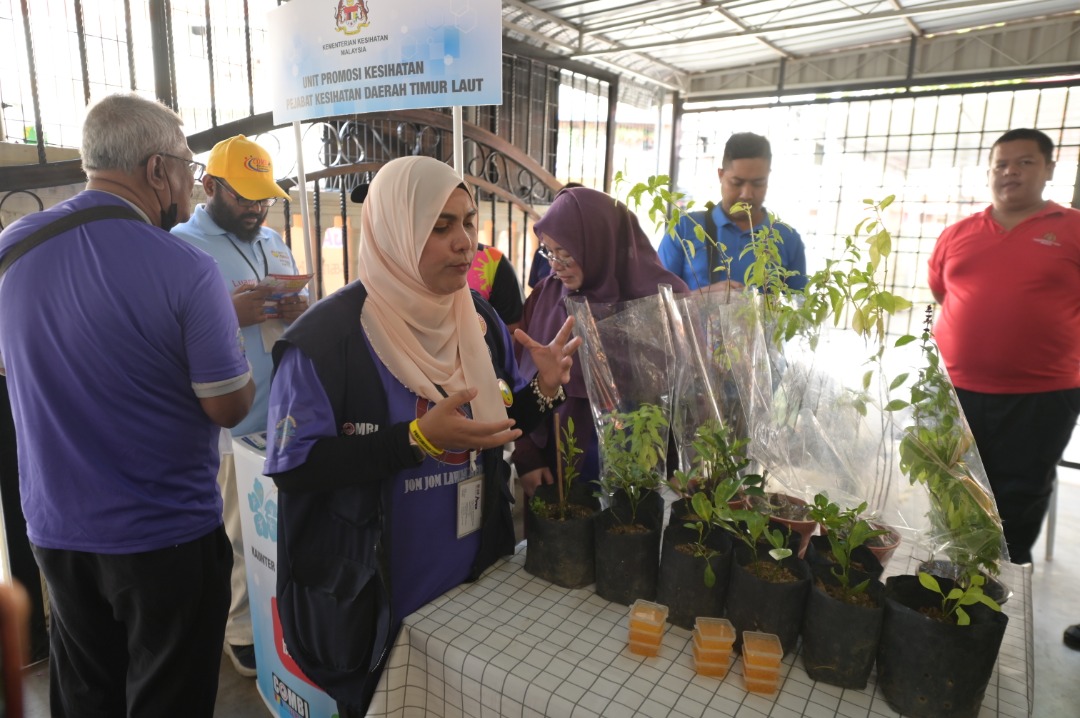USM DON INTRODUCES BIOGEL BAIT TO REPEL AEDES MOSQUITOES

GEORGE TOWN: A Universiti Sains Malaysia (USM)'s School of Biological Sciences lecturer and researcher on vector control and mosquito-borne diseases, more specifically on Aedes dan Culex, has introduced an innovative method to repel Aedes mosquitoes.
Associate Professor Dr Nur Faeza Abu Kassim has introduced a BioGel bait, in the form of hydrogel beads, that can attract and kill the mosquitoes, in addition to using local plants that can repel the Aedes mosquitoes.
According to Nur Faeza, the BioGel bait utilises "sugar bait technology" to manipulate the vector feeding behaviour and to act in an "attract and kill" manner to destroy the Aedes mosquito in all parts of its lifecycle, including its breeding ground, as it is a dengue vector.
"BioGel bait comprises a mixture of local plant extracts, as means of biological control, that is environmental-friendly and safe for humans and animals.
"BioGel is easy to use, consumer-friendly, and with a low-cost of production, can be suitably used indoors and outdoors, and can be purchased at RM10 for a month's usage," she said.
She had introduced her innovative method at the 'Program COMBI Lawan Denggi 2023' and 'Pertandingan Kutip Sampah Berpasukan' at the Hamna Flats compound in Sungai Dua here recently.
About 400 residents participated in the dengue prevention programme and waste collection competition.
Also introduced were the "Anti-Aedes" plants, which included Calamansi Lime, Basil and Mint, in collaboration with the Agriculture Department.
"The most effective and easiest to care for is the basil plant, commonly used as part of a traditional salad dish, while calamansi lime and mint need to reach a certain age to be effective in repelling the Aedes mosquitoes," added Nur Faeza, who has been involved in the study for more than 15 years.
She said the plants were chosen based on extensive studies in their use to repel the mosquitoes.
She, however, said more studies needed to be done to gather more data, such as the length of time, cultivating gap between each plant and how many are needed to ensure the plants' effectiveness.
"In order to prevent Aedes mosquitoes from breeding, the Integrated Vector Control Management method is important as it needs the involvement of the community in ensuring that the environment is clean and there is no stagnant water that can become breeding grounds for Aedes mosquitoes.
"Aedes mosquitoes can become a threat to public health in the country as dengue infection from Aedes mosquitoes can lead to fatalities," she said.
Nur Faeza is the chairperson for the Penang state COMBI.
COMBI is the acronym for Communication for Behavioural Impact, introduced by the World Health Organisation (WHO) in 2001, as a strategy to deal with the dengue problem in Malaysia.
COMBI presents a dynamic approach utilising social mobility and communication strategies to influence individuals, families and communities to shift towards healthy behavioural changes.
https://www.nst.com.my/news/nation/2023/01/875271/usm-don-introduces-biogel-bait-repel-aedes-mosquitoes
- Hits: 3018